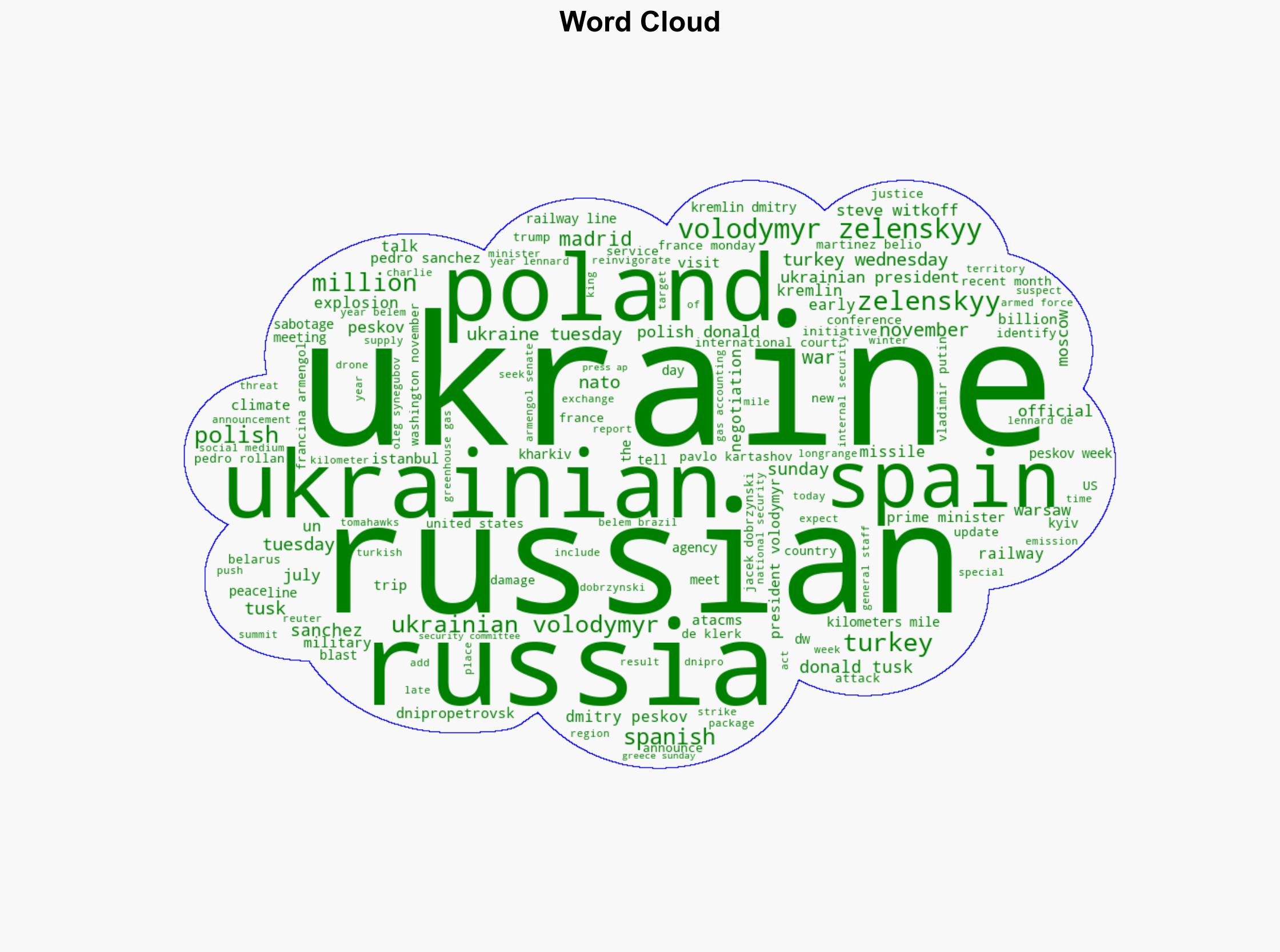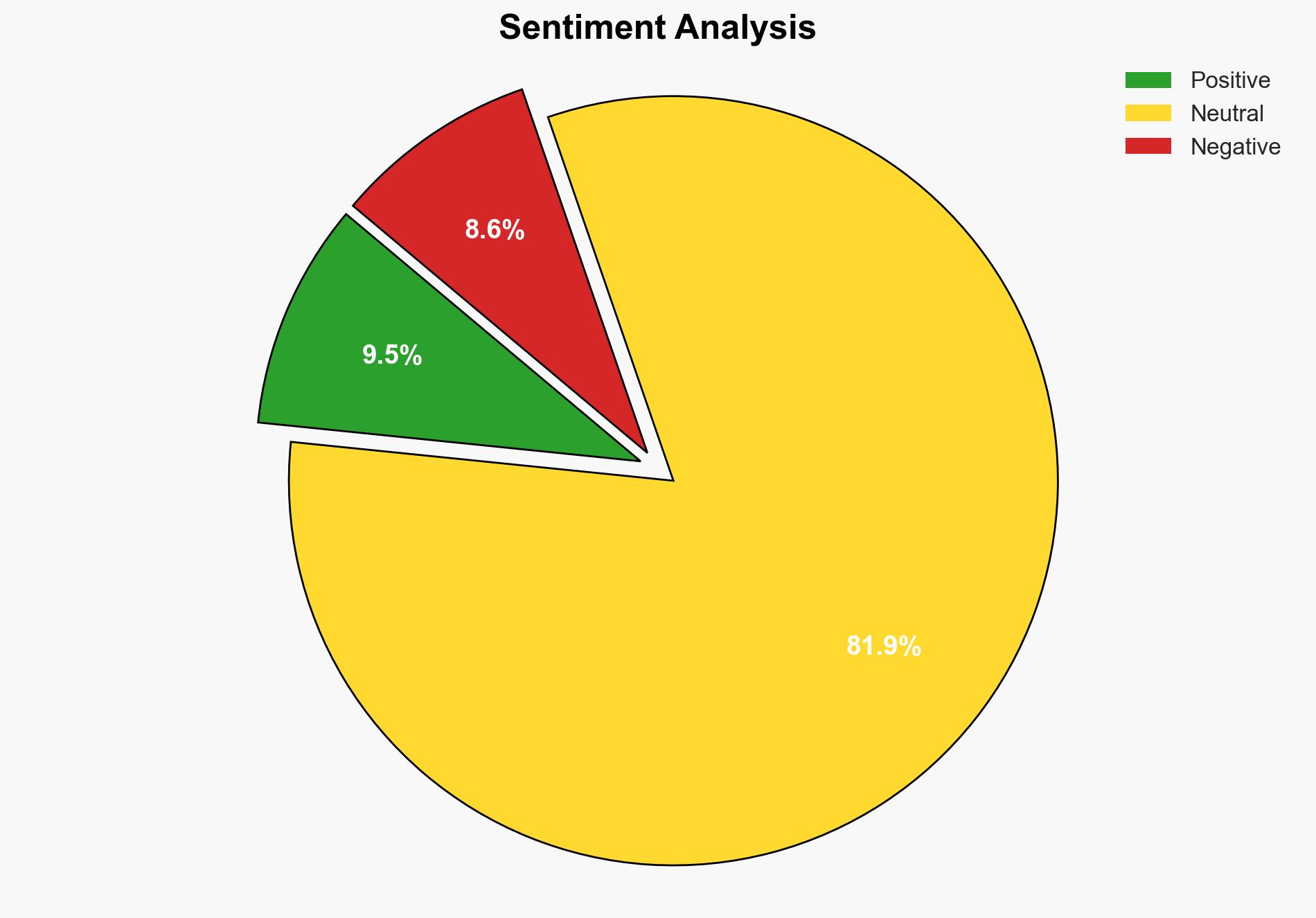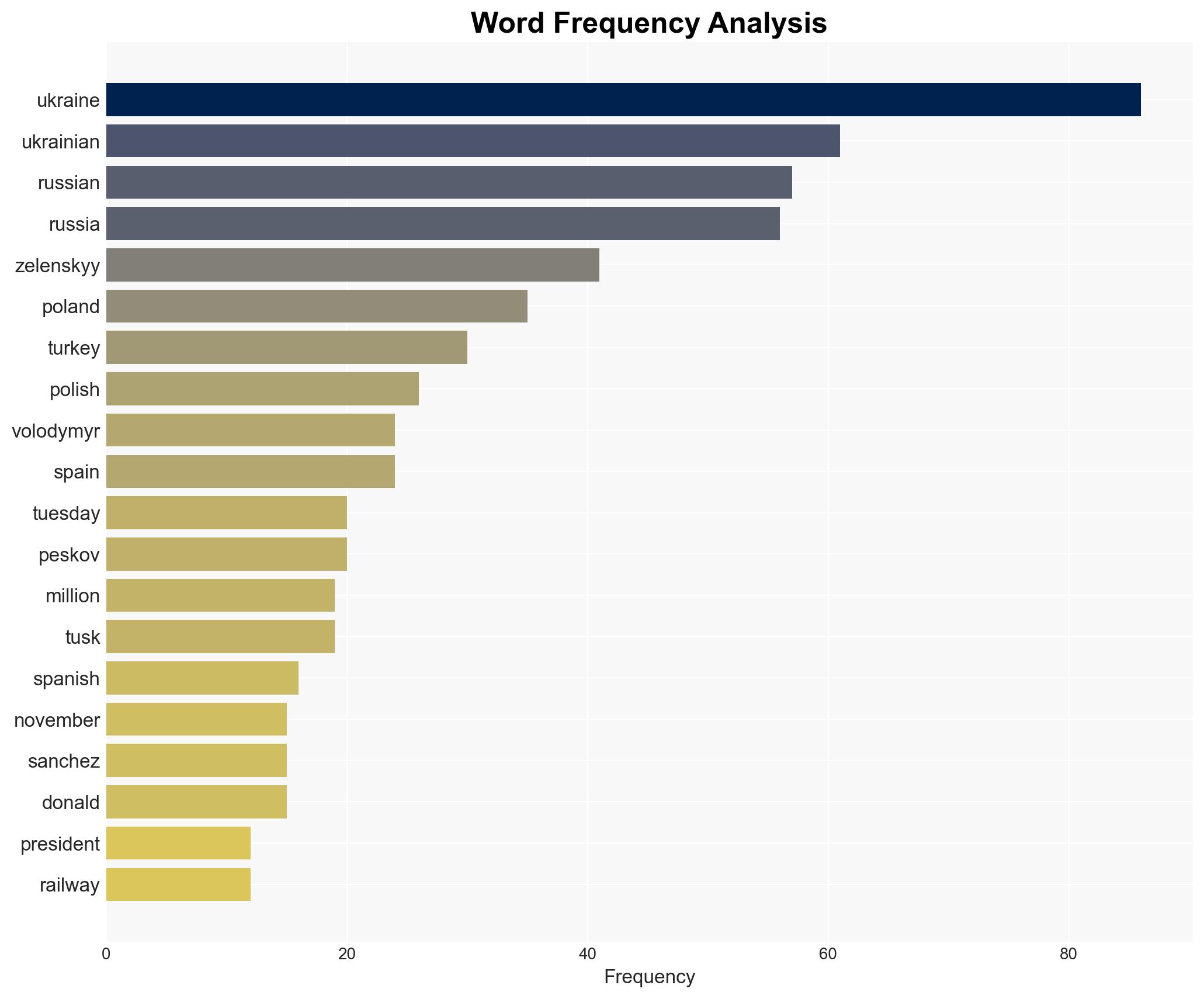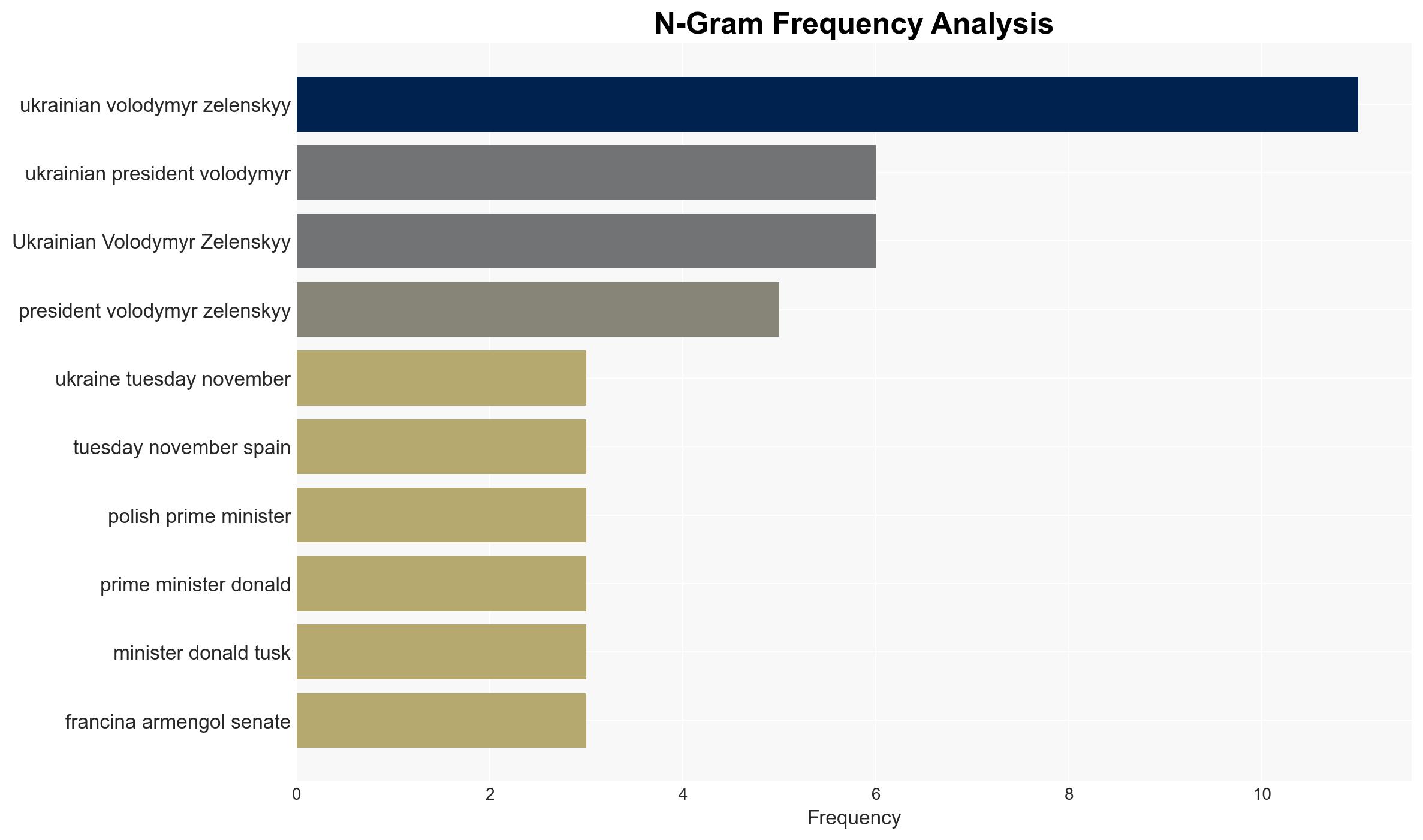Ukraine updates Zelenskyy to visit Turkey in push for talks – DW (English)
Published on: 2025-11-18
AI-powered OSINT brief from verified open sources. Automated NLP signal extraction with human verification. See our Methodology and Why WorldWideWatchers.
Intelligence Report:
1. BLUF (Bottom Line Up Front)
With a moderate confidence level, it is assessed that President Zelenskyy’s visit to Turkey is primarily aimed at securing diplomatic support and military aid amidst escalating tensions with Russia. The most supported hypothesis is that Ukraine seeks to leverage Turkey’s strategic position and influence to bolster its defense capabilities and diplomatic standing. Recommended actions include enhancing intelligence-sharing with Turkey and monitoring potential Russian countermeasures.
2. Competing Hypotheses
Hypothesis 1: President Zelenskyy’s visit to Turkey is primarily to secure increased military support and diplomatic backing against Russia. This is supported by the context of ongoing military aid discussions and the strategic importance of Turkey as a NATO member.
Hypothesis 2: The visit is primarily a diplomatic maneuver to reinvigorate peace negotiations and prisoner exchanges with Russia, using Turkey as a mediator. This is less supported due to the lack of direct evidence of Turkish mediation efforts and the current geopolitical climate.
Hypothesis 1 is more likely due to the recent military aid announcements and the strategic timing of the visit amidst heightened military engagements.
3. Key Assumptions and Red Flags
Assumptions: It is assumed that Turkey is willing to play a more active role in the Ukraine conflict, and that Zelenskyy’s visit will yield tangible military or diplomatic outcomes.
Red Flags: Potential for Russian disinformation campaigns to undermine the visit’s objectives. The possibility of miscommunication or diplomatic fallout if Turkey’s role is perceived as overly aggressive by Russia.
4. Implications and Strategic Risks
The visit could escalate tensions between NATO and Russia, particularly if Turkey increases military support to Ukraine. This might lead to retaliatory actions by Russia, including cyber attacks or increased military aggression. Economically, increased sanctions or trade disruptions could occur if diplomatic efforts fail.
5. Recommendations and Outlook
- Enhance intelligence-sharing with Turkey to ensure alignment on strategic objectives and mitigate risks of miscommunication.
- Monitor Russian military and cyber activities closely for signs of escalation.
- Best-case scenario: Successful diplomatic engagement leads to increased military support and a strengthened NATO alliance.
- Worst-case scenario: Escalation of military conflict and economic sanctions, leading to broader regional instability.
- Most-likely scenario: Incremental increase in military support with limited immediate diplomatic breakthroughs.
6. Key Individuals and Entities
Volodymyr Zelenskyy, President of Ukraine; Pedro Sanchez, Prime Minister of Spain; Donald Tusk, Polish Prime Minister.
7. Thematic Tags
Structured Analytic Techniques Applied
- Cognitive Bias Stress Test: Expose and correct potential biases in assessments through red-teaming and structured challenge.
- Bayesian Scenario Modeling: Use probabilistic forecasting for conflict trajectories or escalation likelihood.
- Network Influence Mapping: Map relationships between state and non-state actors for impact estimation.
Explore more:
National Security Threats Briefs ·
Daily Summary ·
Support us





